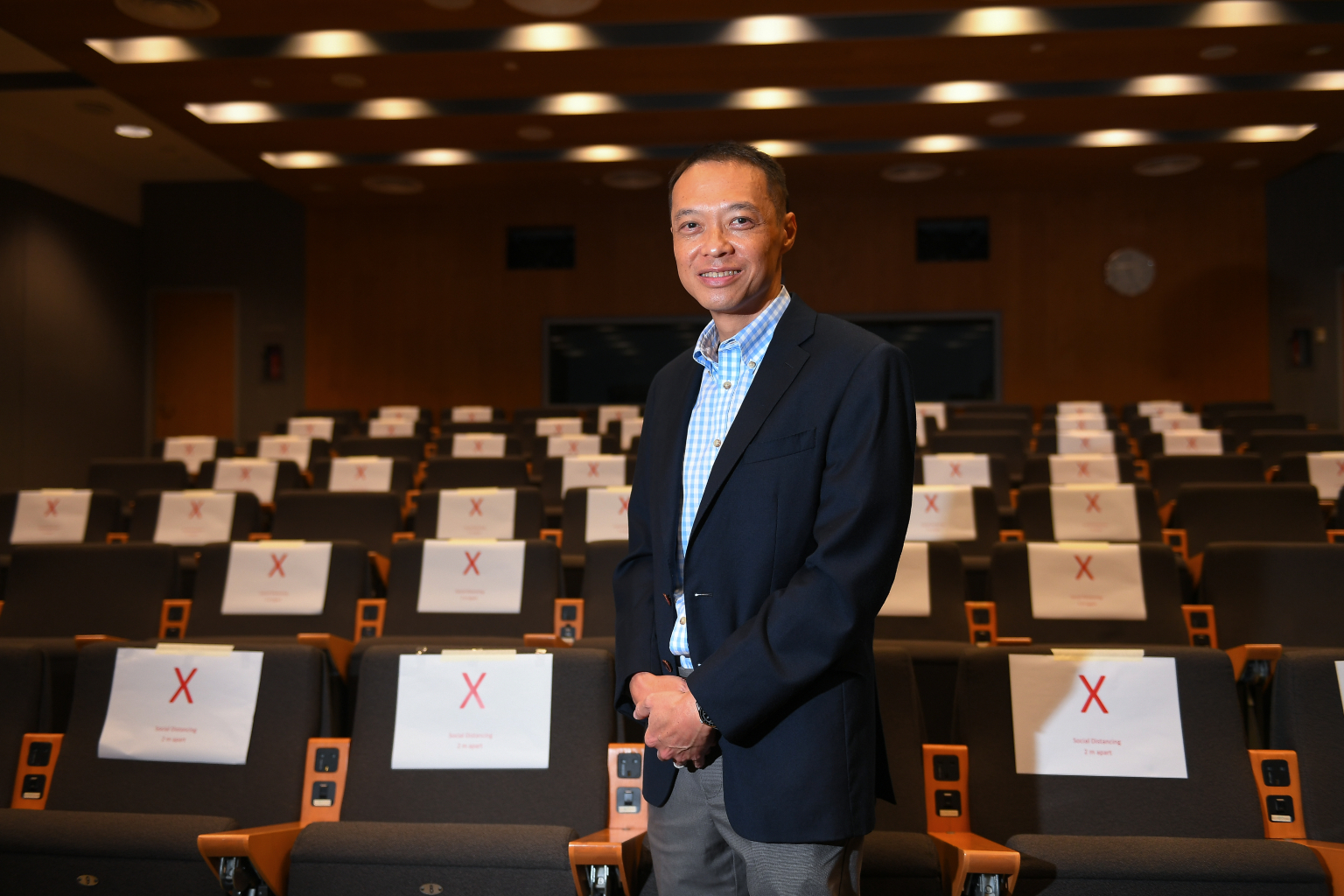ST Asians of the Year: Professor credits teamwork as S'pore joins race for Covid-19 vaccine
Sign up now: Get ST's newsletters delivered to your inbox

Professor Ooi Eng Eong of the Duke-NUS Medical School is co-developer of a Covid-19 vaccine candidate that is among only 51 in the world being tested on humans.
ST PHOTO: SHINTARO TAY
The world is racing towards a Covid-19 vaccine, and efforts by a local scientist have also put Singapore in the running to develop one.
Professor Ooi Eng Eong of the Duke-NUS Medical School is co-developer of a Covid-19 vaccine candidate that is among only 51 in the world being tested on humans.
Prof Ooi, 53, said it was satisfying to know that his team's research is being applied to developing and evaluating a new vaccine to solve a global health problem.
"That we were able to contribute to a rapid development of our vaccine candidate, and be among those in the clinical phase of testing, is a bonus," said Prof Ooi.
He had graduated from St Joseph's Institution and National Junior College in Singapore before pursuing medical training at the University of Nottingham Medical School.
Now, he is driven by the urge to give back to society through science, though the accelerated timeline has been a challenge. His team has overcome this by conducting multiple experiments simultaneously, instead of sequentially.
"Even though there was urgency in developing a vaccine, it was imperative we provide the same quality of evidence to show that the vaccine is likely to be safe in humans and has a chance of eliciting protective immunity," said the professor of emerging infectious diseases.
The early-phase trials for the Lunar-Cov19 vaccine co-developed by Prof Ooi and American pharmaceutical company Arcturus Therapeutics began in Singapore in October.
Preliminary results were positive, and The Straits Times had earlier reported that late-stage trials are expected to begin before the end of the year.
The Lunar-Cov19 vaccine leverages a new technology called messenger RNA (mRNA), similar to the candidates being developed by Moderna and Pfizer-BioNTech, with one difference. The Lunar-Cov19 mRNA molecule is a replicating one that makes multiple copies of the viral spike protein after the injection. The other two are not.
Prof Ooi said the replication more closely mimics how a viral infection plays out in the body, and could coax a stronger immune response from the body.
His team is hopeful that the vaccine could work with only one dose. On the other hand, the vaccines by Moderna and Pfizer-BioNTech require two doses.
As he battles the clock to produce a vaccine, Prof Ooi stresses that the work done on it was a result of teamwork.
"Many people in Arcturus Therapeutics, the SingHealth Investigational Medicine Unit and my lab worked long hours and even over weekends to meet ambitious timelines so that vaccines would be available to the Singapore population sooner rather than later," he said.
He added: "This nomination would not be possible without them and would only be meaningful if done on their behalf."


